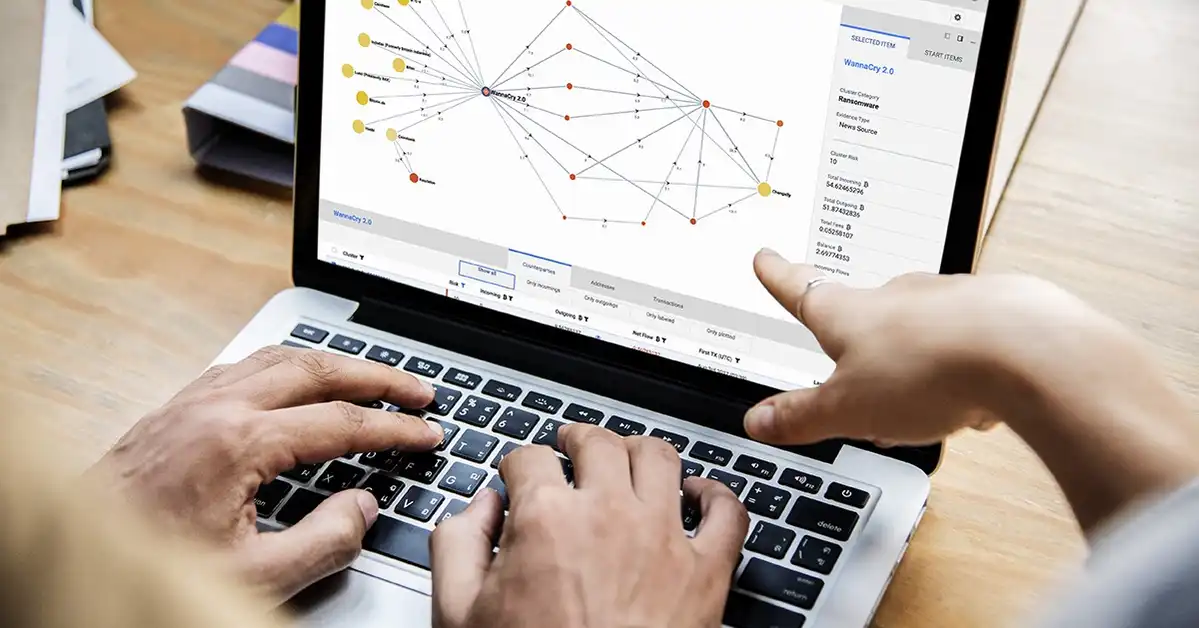In 2024, Web3 infrastructure providers redefine access to transaction data by providing direct insights into data hidden behind crypto nodes. In this illuminating piece, we unravel the intricacies of Ethereum nodes and the pivotal role they play in facilitating seamless access to blockchain transaction data, the central focus of interest for cryptocurrency users and software developers.
The Imperative Role of Nodes in Blockchain Transaction Processing
In its essence, blockchains are decentralized digital ledgers operating as peer-to-peer networks. Transaction data undergoes permanent recording, encryption, and storage on “blocks,” which are interlinked to create a secure database.
In decentralized networks where third-party involvement is absent, the challenge lies in maintaining a comprehensive record of on-chain operations. This is where nodes come into play, acting as vigilant overseers to enforce adherence to a meticulously programmed set of rules governing blockchain transactions.
The electronic entities running specialized hardware form the backbone of the entire system. Their primary role lies in ensuring the adherence of every user to the platform’s consensus algorithm, thereby contributing to the robust infrastructure of the network.
The Case of Ethereum Nodes

In the Ethereum ecosystem, nodes shoulder the responsibility of hosting and validating the entire spectrum of transactions. Moreover, they play a crucial role in the execution of smart contracts, contributing to the seamless functioning of decentralized applications (dApps) and the broader network.
Noteworthy is the fact that a single transaction undergoes scrutiny and approval by multiple Ethereum nodes before being incorporated into the blockchain and revealed to the public via block explorers like Etherescan. With that, a sense of trust is instilled in this groundbreaking technology.
When it comes to accessing data related to ETH, Ethereum nodes also take center stage. Consider, for instance, the interaction with Web3 applications, which rely on establishing connections with these servers to query and update pertinent data. In this context, they facilitate the flow of information and ensure the accuracy and integrity of crypto-related operations.
Leveraging Ethereum Nodes for Crypto Transaction Analysis
Nodes are often underestimated as a powerful tool catering to a diverse audience ranging from traders and crypto enthusiasts to developers:
For Traders: Real-time Insight for Informed Decisions
Traders gain a direct gateway to Ethereum nodes, offering them a real-time lens into transactions. Stay on top of the latest market activities, empowering traders with accurate and timely data to make well-informed decisions that can shape their trading strategies.
For Crypto Users: Trust and Security Amplified
Crypto users can now fortify the legitimacy of their blockchain transactions by cross-referencing them with nodes. This extra layer of verification not only instills trust but also enhances the security of all interactions with the blockchain, ensuring a robust and reliable experience.
For Developers: Empowering the Ethereum Experience
Developers find a powerful ally in Ethereum nodes, enabling direct interaction with the network: deploying and testing smart contracts, querying data, and building DApps — all while maintaining precise control over the network’s behavior.
To seize this array of opportunities, individuals can take the reins by running a node independently or effortlessly connecting to pre-established nodes managed by specialized services.
Web3 Infrastructure Providers: Your Path to Blockchain’s Lifecycle

Ethereum nodes become more accessible with service providers like GetBlock, offering an alternative to the intricacies of setting up an individual node. GetBlock, recognized for its efficiency, establishes a cost-effective and user-friendly bridge, connecting users directly to an expansive network of over 50 blockchains.
ETH developers find utility in GetBlock’s provision of private access tokens, tailored for seamless integration into the application codebase. This feature facilitates a direct connection to the blockchain node, simplifying the development process and ensuring a smoother Web3 experience.
Beyond that, crypto users can tap into GetBlock’s services to access a wide array of blockchain transaction data. The platform offers a free tariff encompassing 40,000 daily requests, providing an opportunity for users to test and explore the functionalities. This allows for a hands-on understanding of the benefits, emphasizing efficiency while maintaining direct access to Ethereum’s decentralized infrastructure.
The Role of Nodes in Blockchain Transaction Processing
Nodes are the backbone of decentralized blockchain networks, ensuring adherence to consensus rules and maintaining a comprehensive record of transactions. They validate user actions, enabling secure peer-to-peer transactions. Ethereum nodes, in particular, play a vital role in hosting and validating transactions, executing smart contracts, and enhancing data integrity. They are essential for trust and security in blockchain technology, providing transparency and reliability in a trustless environment.
Ethereum Nodes: Hosting, Validation, and Smart Contract Execution

Ethereum nodes are pivotal in hosting, validating, and executing a wide range of transactions, including those involving smart contracts. Multiple nodes scrutinize each transaction before it’s added to the blockchain, fostering trust in the system. These nodes facilitate Web3 applications by ensuring data accuracy and integrity, making Ethereum a reliable platform for decentralized applications. Their role extends to providing insights into the Ethereum network’s status, ensuring seamless functionality.
Leveraging Ethereum Nodes for Crypto Transaction Analysis
Ethereum nodes offer valuable insights for various audiences. Traders benefit from real-time transaction data, enhancing their decision-making capabilities. Crypto users gain trust and security by cross-referencing their transactions with nodes, ensuring legitimacy. Developers find Ethereum nodes indispensable for deploying smart contracts, querying data, and building decentralized applications. By tapping into the capabilities of Ethereum nodes, individuals across the crypto spectrum can harness their potential.
Web3 Infrastructure Providers: Accessible Ethereum Nodes
Web3 infrastructure providers like GetBlock simplify access to Ethereum nodes. They offer alternatives to setting up individual nodes, making Ethereum nodes more accessible to a broader audience. GetBlock, renowned for efficiency, connects users directly to a vast network of blockchains, including Ethereum. Developers benefit from private access tokens, easing integration into applications. Free access tariffs with generous daily requests further enhance accessibility, encouraging hands-on exploration of Ethereum’s decentralized infrastructure. These providers mark a pivotal shift in engagement with blockchain networks.
Wrapping Up
The inherent transparency of decentralized systems offers a clear and accessible lens into the heart of cryptocurrency network activities. With node service providers, participating in the blockchain transaction lifecycle has never been more accessible, marking 2024 as a pivotal year for engagement and exploration. Dive in and shape the future of blockchain on your terms!




